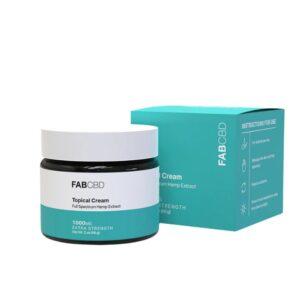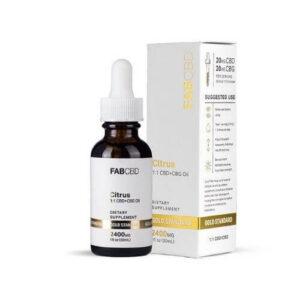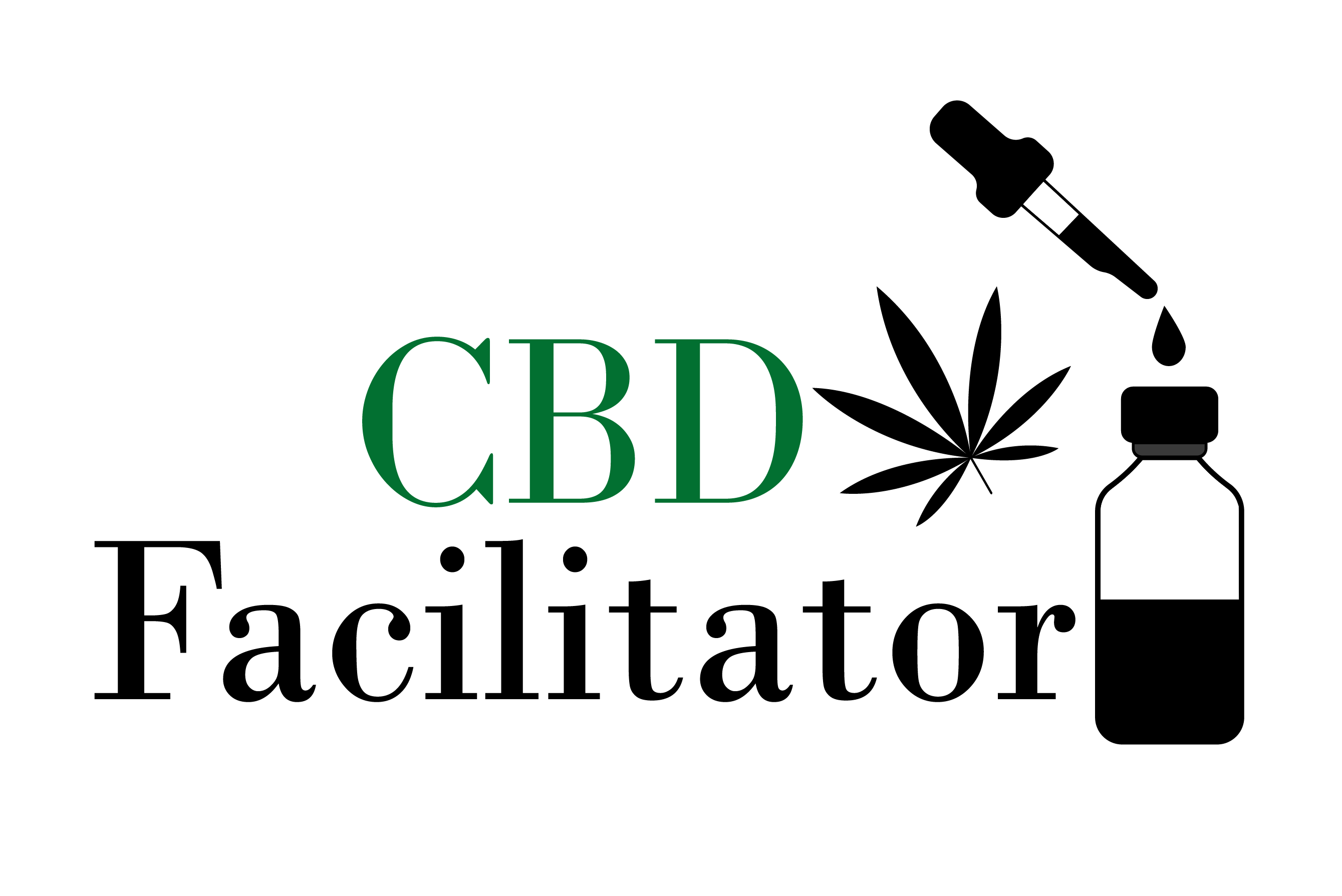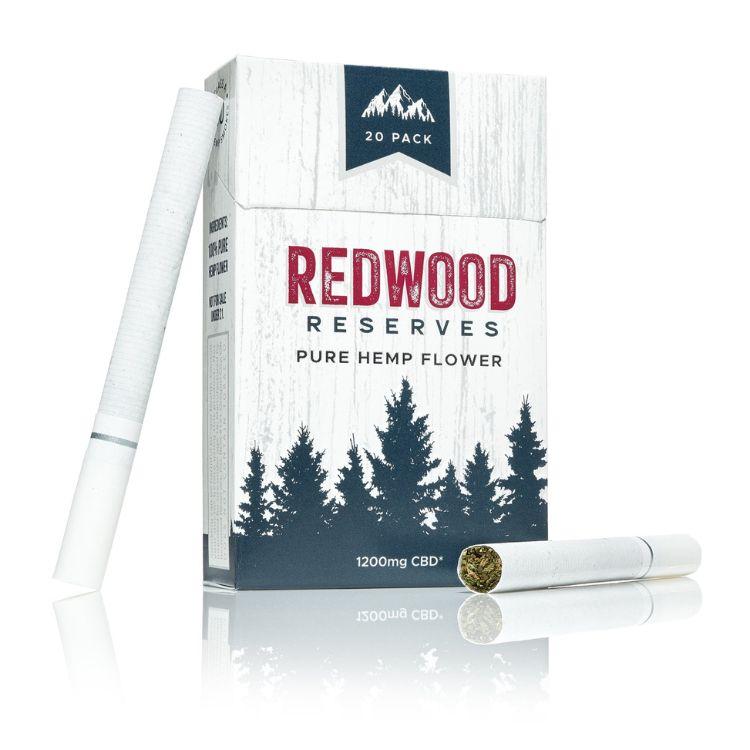Cannabidiol (CBD) has recently gathered traction for its multiple benefits in relation to the human body. One such alleged benefit is that it reduces inflammation.
According to research and anecdotal evidence, CBD can certainly help inflammation. But the science is still limited, and your results may depend on how you use your CBD and what type of inflammation you are dealing with.
In this article, we will go in-depth about the uses of CBD for inflammation, what is inflammation, why CBD helps to treat it, and what types of CBD you should invest in depending on your condition.
Why It’s Better Than the Rest
- 3x Stronger Than Your Average CBD Cream
- Full-Spectrum Oil Used for Maximum Relief
- Fresh and Subtle Blood Orange Scent
- Silky, Light, & Non-Greasy
Brief overview on CBD for inflammation
Cannabidiol (CBD), a non-psychoactive compound derived from Cannabis sativa, has gained attention for its potential anti-inflammatory properties. Research suggests that CBD interacts with the body’s endocannabinoid system (ECS) and other molecular pathways to regulate inflammation and immune responses. Here’s a brief overview:
Mechanisms of Action
Endocannabinoid System Interaction: CBD interacts with CB2 receptors, which are involved in reducing oxidative stress and inflammation by decreasing reactive oxygen species (ROS) and pro-inflammatory cytokines like tumor necrosis factor α (TNF-α).
Molecular Pathways: CBD modulates pathways such as NF-κB and interferon-beta (IFN-β), which are critical in inflammatory responses. It inhibits the synthesis of pro-inflammatory cytokines while enhancing anti-inflammatory signaling.
Cellular Effects: In conditions like rheumatoid arthritis, CBD reduces the viability of synovial fibroblasts, a major contributor to joint inflammation, by increasing intracellular calcium levels and targeting activated fibroblasts.
Considerations
While CBD has shown anti-inflammatory benefits, optimal dosing and long-term effects remain unclear.
Full-spectrum CBD products may be more effective due to the synergistic action of cannabinoids.
Clinical studies are still limited, and healthcare professionals should be consulted before use, especially for individuals on other medications.
CBD’s potential as an anti-inflammatory agent continues to be a subject of ongoing research, offering hope for managing chronic inflammatory conditions.
Has CBD been proven to reduce inflammation?
Below, we’ve outlined some of the most promising and reliable studies about CBD for inflammation.
- Studies related to inflammatory relief using CBD go way back to 2009, with some experiments on animals showing that the extract worked well in tandem with the immune system and reduced inflammation and pain in a number of cases, showing a lot of promise in the medical community. We will look at the most recent studies in relation to this in a nutshell.
- In a neurological study published in 2018, researchers found that CBD attaches itself to sensory receptors and desensitizes them. These receptors are the ones that alleviate pain and sensory perception, body temperature, and, of course, inflammation. It proved that while the chemical itself does not bind with the human body’s cannabinoid receptors as much, it does have an impact on other receptors.
- According to a study published a year before that in the journal Pain, in 2017, Holly T Philpott and co. found that CBD treatment helped ease osteoarthritis, a type of joint pain, in male rats. Applying some local treatment to the area helped reduce acute inflammation and also showed results in preventing pain and nerve damage in the joints.
- In another study involving rodents in 2016, Christian Lehmann and five of his colleagues initiated a randomized controlled trial using CBD to help ease pancreatic inflammation in diabetic mice. Diabetes can be a result of this type of inflammation due to the ruination of cells that produce insulin. In a period of treatment that lasted about two and a half months, results showed that mice who had been administered with CBD developed diabetes much later compared to mice who had not been given extract. The entire procedure was an experimental cannabidiol treatment published in Clinical Hemorheology and Microcirculation.
- Finally, going all the way back to 2015, reviewers found that CBD significantly lessened inflammation in the human body through various different corridors while observing the anti-inflammatory properties of the chemical. The review concluded that CBD is quite an efficacious treatment solution, showing the potential to treat inflammation across several different conditions. The review was published in Bioorganic and Medicinal Chemistry.
As we can see in many of the above reviews and research studies, links to which you can all find here, although results are encouraging, they have mostly been tested on animal models in experimental capacities. FDA-approved medication still has a ways to go when it comes to CBD. People who suffer from various types of inflammation will have to make do with the approved list of methods until an alternative such as CBD is deemed safe enough for use to the general public.
How does CBD reduce inflammation?
To understand why CBD has become a popular remedy for treating inflammation, let us first understand what inflammation exactly is.
Inflammation: Chronic and Acute
Inflammation is our immune system’s response when it perceives a threat against our body like an infection or a disease. There are two types of inflammation that occur: acute, or chronic.
Acute inflammation lasts for a short period of time, usually two weeks or less. The body is restored to its previous state (as it was before the injury or infection), as the inflammation reduces.
Chronic inflammation lasts for a longer period of time, over six weeks, for example. It is a slower form of inflammation and can occur even without any injury to the body. It also doesn’t necessarily reduce after the infection heals. Illnesses related to chronic inflammation include cancer, diabetes, asthma, or heart diseases. Recurring cases of acute inflammation could lead to chronic episodes as well.
Inflammation presents itself in our body in the form of symptoms such as redness, swelling, body ache, headaches, gastrointestinal problems, loss of appetite, mood disorders, fever, consistent fatigue, or frequent infections.
It could be caused by a number of different factors, such as the aforementioned conditions in both acute and chronic cases. Certain medications and foreign bodies may contribute as causal elements, too, where the body’s immune system mistakenly attacks one’s own body in an attempt to fight these foreign materials, which are called autoimmune disorders. Sugary food, processed meat, alcohol, refined carbs, and unsaturated fat are causes for inflammation as well.
Apart from prescribed medications, things that can help battle inflammation include physical activity, maintaining a healthy weight, managing stress, or quitting smoking and drinking.
But in recent years, research has shown that there is another effective remedy against inflammation: cannabidiol.
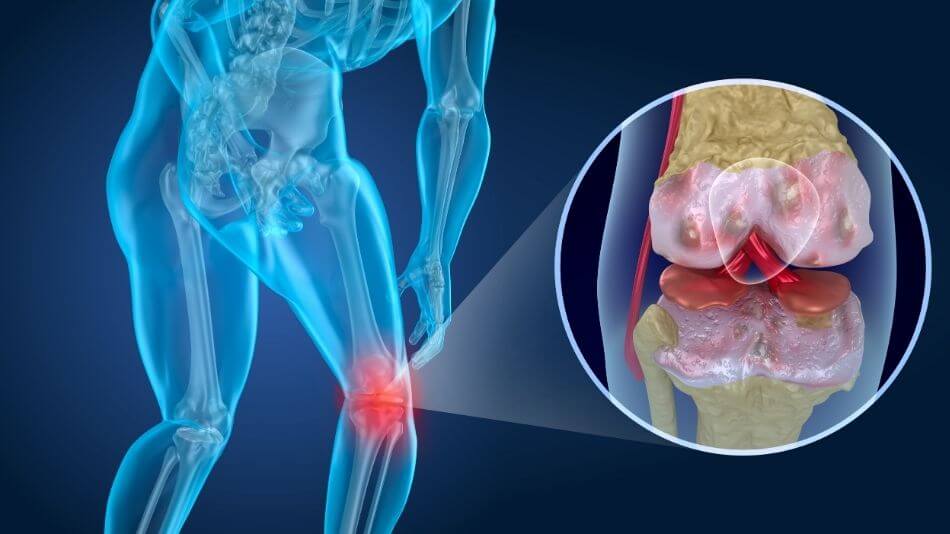
CBD and Inflammation
CBD is derived from a kind of cannabis plant known as Cannabis sativa. It is one of the 400 chemical compounds found in the plant. Another popularly known chemical compound is tetrahydrocannabinol, or THC, which is the cannabinoid that causes the “high” that cannabis is known for. But CBD is the compound that is gaining popularity for its many health benefits.
It’s shown to have all the advantages that medications provide but without any of the side effects, essentially giving us a fail-safe, anti-inflammatory that is also a plant-based derivative. An added bonus is the mental edge, with CBD potentially reducing stress, anxiety, and other mental disorders that chronic inflammation is associated with, such as depression.
CBD can help reduce multiple kinds of inflammation in our body, like:
- Acne
- Arthritis
- Gout
- Carpal Tunnel
- Runner’s Knee
- Crohn’s Disease
CBD and the ECS
The Endocannabinoid System in the human body has been researched by many in recent years. It has been linked to functions and processes such as:
- Sleep
- Appetite
- Mood
- Reproduction
- Metabolism
- Stress
- Muscle and bone growth
- Heart and liver functioning
- Inflammation and other immune system responses
While more research is still required to understand the exact effects of the interaction between CBD and ECS, existing studies claim that CBD works by preventing endocannabinoids from being broken down. Endocannabinoids are molecules that are similar to cannabinoids, but they are produced within the human body itself. They are one of the three core components of ECS (alongside receptors and enzymes). This allows the endocannabinoids to work more effectively. And since the ECS is related to immunatory responses like inflammation, CBD helps with reducing it.
CBD vs NSAIDs for inflammation relief
According to worldhealth.net, around 30 million people in the US alone used non-steroidal anti-inflammatory drugs in 2019, better known as NSAID users, for pain relief.
As previously mentioned, CBD is being looked at as a safer alternative to NSAID medication, such as aspirin, naproxen, or ibuprofen, among others.
Even these common, over-the-counter drugs are not without side effects, which is why many people are searching for alternatives. People who consume NSAID medication must consider risk of gastrointestinal ulcers, bleeding, kidney damage, and even heart attacks. Along with those worrisome side effects, consider that one-tenth of the entire American population complains of constant and severe pain almost on a daily basis, churning out an average of $50 million dollars in medical expenditure in one year. The need for a safe, pain-relief and anti-inflammatory alternative is critical.
Just under 20% of all NSAID users go beyond their prescribed daily dose with their medication, not because they mean to, but simply because they are unaware of the potential risk of exceeding this limit, all in a bid to try and ease their pain. Some side effects to this include potential risks to cardiovascular diseases, gastrointestinal diseases, kidney issues, allergies, skin reactions, swelling, wheezing, hives, blisters and rashes on the skin.
CBD, however, does not come with any of these side effects. Although both NSAID and CBD medications share the same goal in trying to alleviate inflammation and ease pain, certain CBD methods like oils and tinctures have shown to have the same anti-inflammatory effects as medicines like ibuprofen and aspirin, without the risk of the aforementioned side effects. CBD oils have been found to contain nutrients which are adept at boosting one’s health. A full spectrum hemp oil CBD product holds multiple compounds and phytonutrients such as cannabinoids, terpenes and flavonoids. These benefit the body and are powerful boosters which, some claim, create a beneficial mind-body balance.
Another advantage added to CBD’s “pros” list is that it’s friendlier for the environment. After ingestion and digestion, NSAIDs are pushed back into the environment through surplus, unused drug waste, as well as through excretion. This harms the environment and contaminates ground and surface water, endangering the safety of the biosphere and aquatic life. CBD, however, comes from plants itself and, when thrown back into the world, do not cause any environmental issues due to it being completely biodegradable.
Choosing to go the ‘CBD way’ also helps farmers, small entrepreneurs and local businesses grow, all while using natural, green products which help the environment, instead of paying the big corporations for NSAID medication.
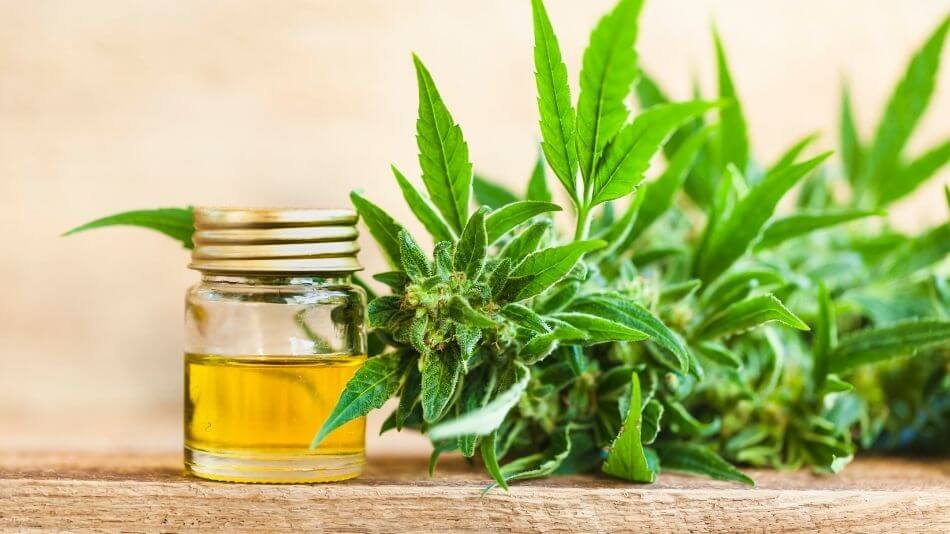
How to use CBD to treat inflammation
To use CBD for inflammation, consider these steps:
Choose a CBD Product: Options include oils, capsules, edibles, and topicals. For targeted relief, topicals may be applied directly to affected areas. For systemic inflammation, oils or capsules might be more effective.
Start with a Low Dose: Begin with a low dose (10-20mg) and gradually increase until you find the optimal dosage that reduces your inflammation without causing unwanted side effects.
Administer CBD:
Oils: Place a few drops under your tongue (sublingually), hold for about 60-90 seconds before swallowing.
Capsules/Edibles: Take as you would any oral medication or supplement.
Topicals: Apply directly to the inflamed area and rub in gently.
Monitor Effects: Keep a record of your dosage, how you administer the CBD, and how it affects your symptoms. This will help you fine-tune your approach.
Consult a Healthcare Professional: If you’re using other medications, consult with a healthcare provider before using CBD to avoid potential drug interactions.
Should I use full-spectrum, broad spectrum, or CBD isolate for inflammation?
In the current market scenario, there are three different kinds of cannabinoid spectrum options to choose from if you’re considering using CBD to reduce your inflammation. These include:
- Full-spectrum CBD
- Broad-spectrum CBD
- CBD isolates
Full-spectrum CBD contains all the phytochemicals that are inherently found in the plant, so that all the compounds can work in harmony to produce stronger results. It is the most powerful form of CBD available. However, it also contains the controversial compound THC, which is the cannabinoid that causes the “high” experience attributed to the cannabis plant. Although the percentage of THC is very low in such CBD options —less than 0.3 percent— it still has the potential to show up on drug tests after prolonged, heavy use of full-spectrum CBD products, which makes it a less appealing option, despite its potent effects. With that in mind, if you are dealing with powerful, chronic inflammation, or inflammation symptoms that come on quickly and cause sudden pain, then we recommend the powers of full-spectrum CBD, which offers you all the potent effects of the entourage effect.
If it’s still important to you to avoid THC, then broad-spectrum CBD is your best bet. Much like full-spectrum CBD, this variant also contains all the naturally-occurring phytochemicals found in the cannabis plant. However, the THC compound is removed, which means that consumption or usage of broad-spectrum CBD will not appear on a drug test. However, this also results in decreased effectiveness of the product. In comparison, full-spectrum CBD is definitely more effective for fighting inflammation, but broad-spectrum can still offer many benefits.
Another option is CBD isolate, which is the purest form of CBD. This is a variant that is made after refining CBD and removing all other chemical compounds found in the plant except for CBD itself. This means that this option is not just potent, but also very versatile, and can be added to or used in conjunction with a lot of different kinds of products. It will also never show up on a drug test since it contains absolutely no traces of THC. However, the refinement process also may decrease therapeutic capabilities, due to the lack of other compounds such as terpenes. We recommend CBD isolate for dealing with specific, but maybe not urgent, inflammation problems, such as runner’s knee.
The type of CBD you choose to deal with your inflammation issue depends on the extent of your problem, and on your individual situation, like whether or not you are comfortable with the presence of THC. It also depends on the form of CBD you will be using–for example, if you are using a CBD-based cream for acne or for inflammation such as muscle injury, full-spectrum CBD might be fine as you will not have to consume it so the compounds stay localized without entering your bloodstream. Alternatively, CBD isolate can ensure you are using nothing but pure CBD for your body to reap its best benefits, especially when it involves consumption (oral, or contact with your bloodstream).
What is the best CBD ratio for inflammation?
A full-spectrum 1:1 CBD/CBG oil may offer enhanced anti-inflammatory benefits compared to a standard full-spectrum CBD oil due to the complementary mechanisms of CBD and CBG. Here’s how they compare:
CBD vs. CBG for Inflammation
CBD: Primarily reduces inflammation by interacting with CB2 receptors, modulating NF-κB signaling, and reducing pro-inflammatory cytokines such as TNF-α and IL-6. It also has antioxidant properties that help mitigate oxidative stress.
CBG: Targets different inflammatory pathways, including inhibition of the COX-2 enzyme, suppression of NF-κB activation, and reduction of cytokines like TNF-α and IL-10. It also interacts with TRPV channels, which are relevant for gastrointestinal and neuroinflammatory conditions.
Synergistic Effects
Studies suggest that combining CBD and CBG (cannabigerol) enhances their anti-inflammatory effects:
A 1:1 ratio of CBD and CBG may create an “entourage effect,” where the cannabinoids work together to amplify their therapeutic benefits.
This combination targets multiple inflammatory pathways simultaneously, potentially making it more effective for conditions like arthritis, inflammatory bowel disease (IBD), or neuroinflammation than using CBD alone.
Potential Advantages of 1:1 CBD/CBG Oil
| Full-Spectrum CBD Oil | 1:1 CBD/CBG Oil | |
|---|---|---|
| Inflammatory Pathways | Primarily CB2 receptor modulation | Targets CB2, COX-2, NF-κB, TRPV |
| Conditions Addressed | General inflammation | Broader range |
| Effectiveness | Effective but limited to CBD’s pathways | Enhanced via complementary actions |
| Side Effects | Minimal | Similar but may vary depending on dose |
A full-spectrum 1:1 CBD/CBG oil is likely more effective for inflammation than a standard full-spectrum CBD oil due to its ability to target multiple inflammatory pathways. However, further research is needed to confirm these benefits in human studies. Always consult a healthcare provider before starting any new supplement regimen.
Why It’s Better Than the Rest
- 1:1 ratio of CBD to CBG (cannabigerol)
- Full Spectrum of Cannabinoids and Terpenes
- Every Bottle is Made to Order Ensuring Freshness
- 12 Month Shelf Life
Can CBD be used in conjunction with other medications for inflammation?
CBD can be used alongside other medications for inflammation, but it requires careful consideration due to potential drug interactions. Here are the key points:
Potential Drug Interactions
Metabolism via CYP Enzymes: CBD is metabolized primarily by the CYP3A4 and CYP2C19 enzymes, which also metabolize many medications. Drugs that inhibit these enzymes can increase CBD levels, while enzyme inducers can reduce its bioavailability.
NSAIDs: CBD can interact with NSAIDs like ibuprofen and diclofenac. Studies suggest that combining CBD with NSAIDs may enhance anti-inflammatory effects by modulating pathways such as NF-κB and COX-2, but potential side effects (e.g., nervous system issues) should be monitored.
Other Medications: CBD may increase serum concentrations of drugs like corticosteroids, certain antidepressants, opioids, and blood thinners (e.g., warfarin), potentially amplifying their effects or side effects.
Clinical Considerations
Enhanced Anti-inflammatory Effects: CBD combined with NSAIDs or corticosteroids may provide synergistic benefits for inflammation by targeting multiple pathways, but this approach requires further clinical validation.
Safety Concerns: CBD can cause liver enzyme elevations when combined with medications like valproate or NSAIDs. Regular monitoring is advised.
Dosage Adjustments: Co-administration may require adjusting the doses of either CBD or the other medication to avoid adverse effects. For example:
Reduce doses of drugs metabolized by CYP2C19 when taken with CBD.
Increase CBD dosage if combined with CYP3A4 inducers.
Recommendations
Always consult a healthcare professional before combining CBD with other anti-inflammatory treatments to ensure safety and efficacy.
- Exercise extra caution if you’re taking a prescription drug with a grapefruit warning on the label, as this indicates the medication is metabolized by the same liver enzymes as CBD.
Conclusion: Does CBD work as an anti-inflammatory?
According to many studies, CBD can be a highly effective treatment for many types of inflammation. There is still a lack of official study in the area using human subjects in an uncontrolled environment. However, there is also much anecdotal evidence that suggests real, tangible anti-inflammatory benefits to CBD use.
CBD can help with inflammation such as:
- Arthritis
- Acne
- IBS
- Muscle injury
- And more
For each of these inflammation issues, there are different variants of CBD that you can use as per your preferences and requirements. These include:
- Full-spectrum CBD
- Broad-spectrum CBD
- CBD Isolate
CBD is available in multiple different products. These include:
- Oils and Tinctures
- Topicals (e.g. cream, balms)
- Edibles (e.g. gummies, capsules)
- CBD Flower
- Concentrates (e.g. vape pens, dabs)
Each of these different methods of consumption have their own pros and cons, as listed above. Some methods might be better suited for treating a particular type of inflammation–for example, a CBD based cream that can be applied directly to acne spots on the face will be a better course for treating acne than vaping or smoking would be.
Such choice of methods also depend on your lifestyle, body, family, surroundings, and even on your previous experience with CBD or cannabis. Some people might still feel uncomfortable with the idea of using CBD to treat inflammation, but as seen above, it is a better option than even aspirin, especially in terms of how few side effects there are with CBD. With all its now-known benefits, as well as the variety of products it is now available in, trying out CBD for your inflammation issues should be a no-brainer as it can certainly help you in the long run.
When you buy CBD, remember to purchase it only from the most reliable sources. With your health and safety in mind, we’ve arranged a free database of all the most trustworthy CBD products on the market. Check out our recommended brands here.
FABCBD CBG Oil
✔️ 1:1 ratio of CBD to CBG (cannabigerol)
✔️ Three Delicious Flavors: Citrus, Mint, & Natural
✔️ Full Spectrum of Cannabinoids and Terpenes
✔️ Bottles are Made to Order Ensuring Freshness
✔️ 12 Month Shelf Life
✔️ 30-Day Money Back Guarantee
FABCBD Topical Cream
✔️ 3x Stronger Than the Industry Standard
✔️ Full-Spectrum Oil Used for Maximum Relief
✔️ Fresh and Subtle Blood Orange Scent
✔️ Silky, Light, & Non-Greasy
✔️ No Parabens or PEGs
✔️ 30-Day Money Back Guarantee

